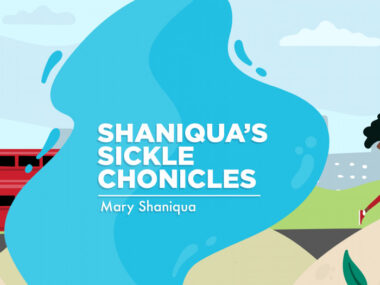How to support a friend with sickle cell disease
A columnist shares the practices he finds most helpful
Written by |

Many people have asked me how they can be a good friend to someone with sickle cell disease. I’m always willing to give advice, but I include the caveat that my suggestions are what I would appreciate. They may not apply to everyone.
That said, I feel like a good friend is generally someone willing to learn, understand, and be empathetic. Chronic conditions affect people differently, but these values provide a good foundation for optimal support.
Learning about sickle cell
A majority of sickle cell patients experience pain crises. However, we may also face many other health complications, such as fatigue, avascular necrosis, and organ damage. It’s essential that our friends communicate and seek to understand how we are specifically affected by the condition.
My primary triggers are stress and tiredness, for instance, so my friends try to mitigate these issues whenever possible. That could mean that we take an extra day to relax on a trip, or that they understand I won’t be able to attend every social activity.
I want to be included in the decision-making process, because ultimately, I know my body the best. It’s essential that our friends consider how they can include us, given our unique symptoms and limitations, and communicate with us about that.
Providing emotional support
Sickle cell can be emotionally taxing, so friends can make a great start by creating a safe space for us to discuss our feelings and fears without judgment. Chronic conditions exist every day, not only when there’s visible distress. It’s essential that our friends check in on us regularly, not just during a crisis, to ensure we know of their support.
Opening up about how sickle cell affects me was a process. Thanks to my advocacy, a lot of people know I have the condition. However, it’s my friends who check in with me and remind me of the emotional support I have.
Being emotionally vulnerable isn’t easy; I know from experience that it can take a while to feel comfortable opening up to someone. Friends shouldn’t lose hope if we aren’t ready to do that at first. Give us time.
Offering practical support
Friends have plenty of practical ways to support us. For example, they could help us around the house or give us a lift to a hospital appointment. Support during a crisis is crucial; depending on our pain level, we may not be able-bodied during these events. Friends can ask us what types of practical support would be most helpful.
Sometimes when I’m in crisis, however, I can’t communicate what kind of support I need. My friends and I have had many discussions about how they can assist me during those times, such as knowing which medications I take and which interventions help with my pain.
Advocating on our behalf
Managing sickle cell disease can be challenging in many ways. We might face misconceptions or discrimination, or, in my case, have trouble communicating pain in the hospital. In those instances, a friend who can advocate for us is much appreciated. Having discussions beforehand will equip friends with the knowledge and confidence they need to advocate on our behalf.
I appreciate friends who donate blood, share my posts, and speak on the issues that sickle cell patients face. These actions speak volumes about how much people care for me and my community. I’m encouraged to keep going, even when it’d be easier not to.
Ultimately, we appreciate friends who support us by being open, patient, and empathetic. We know that maintaining a relationship with someone who’s chronically ill isn’t always easy, but all the best friendships require work. A good friend will make life a little easier for us.
Note: Sickle Cell Disease News is strictly a news and information website about the disease. It does not provide medical advice, diagnosis, or treatment. This content is not intended to be a substitute for professional medical advice, diagnosis, or treatment. Always seek the advice of your physician or other qualified health provider with any questions you may have regarding a medical condition. Never disregard professional medical advice or delay in seeking it because of something you have read on this website. The opinions expressed in this column are not those of Sickle Cell Disease News or its parent company, Bionews, and are intended to spark discussion about issues pertaining to sickle cell disease.


Leave a comment
Fill in the required fields to post. Your email address will not be published.